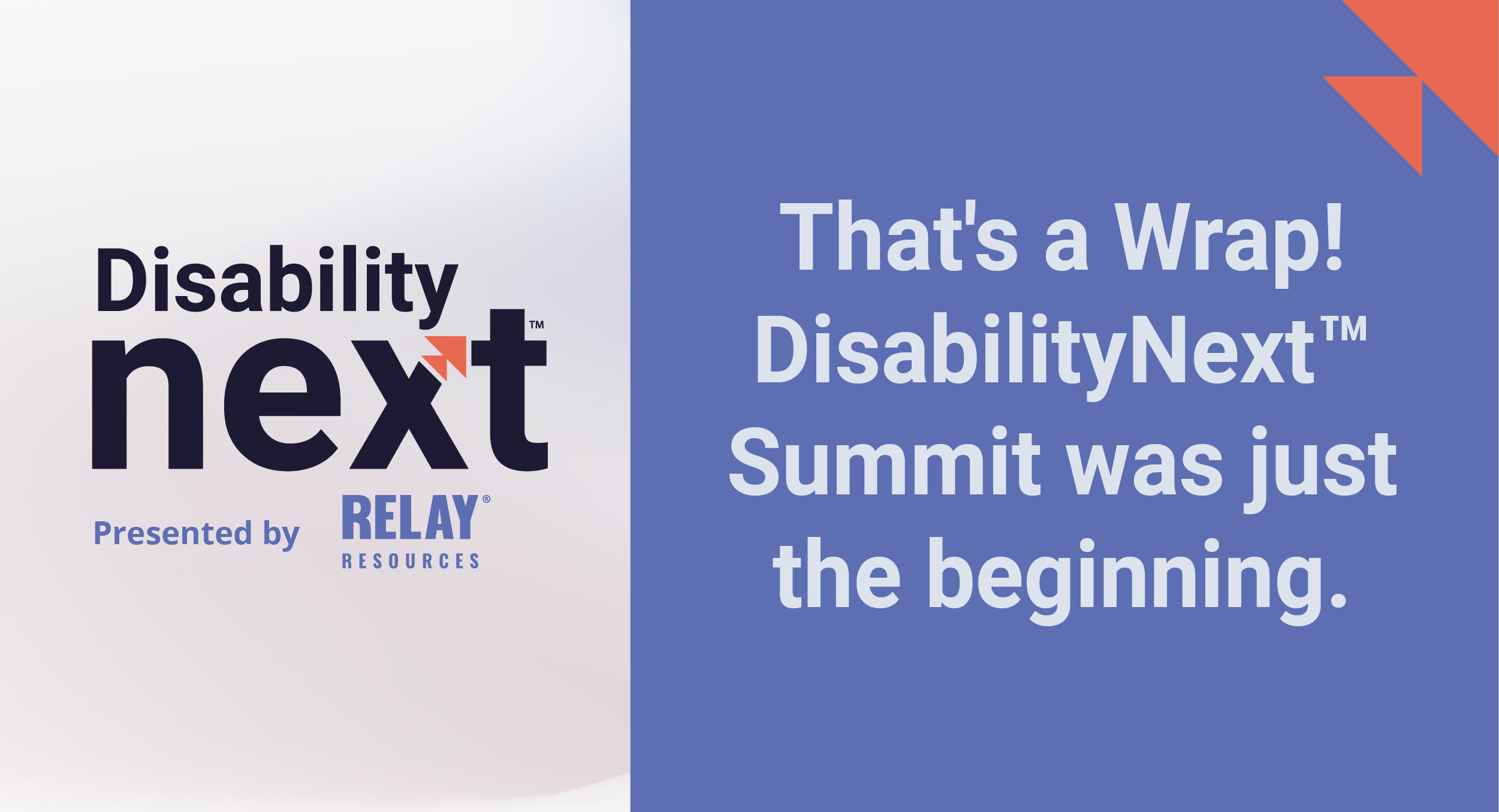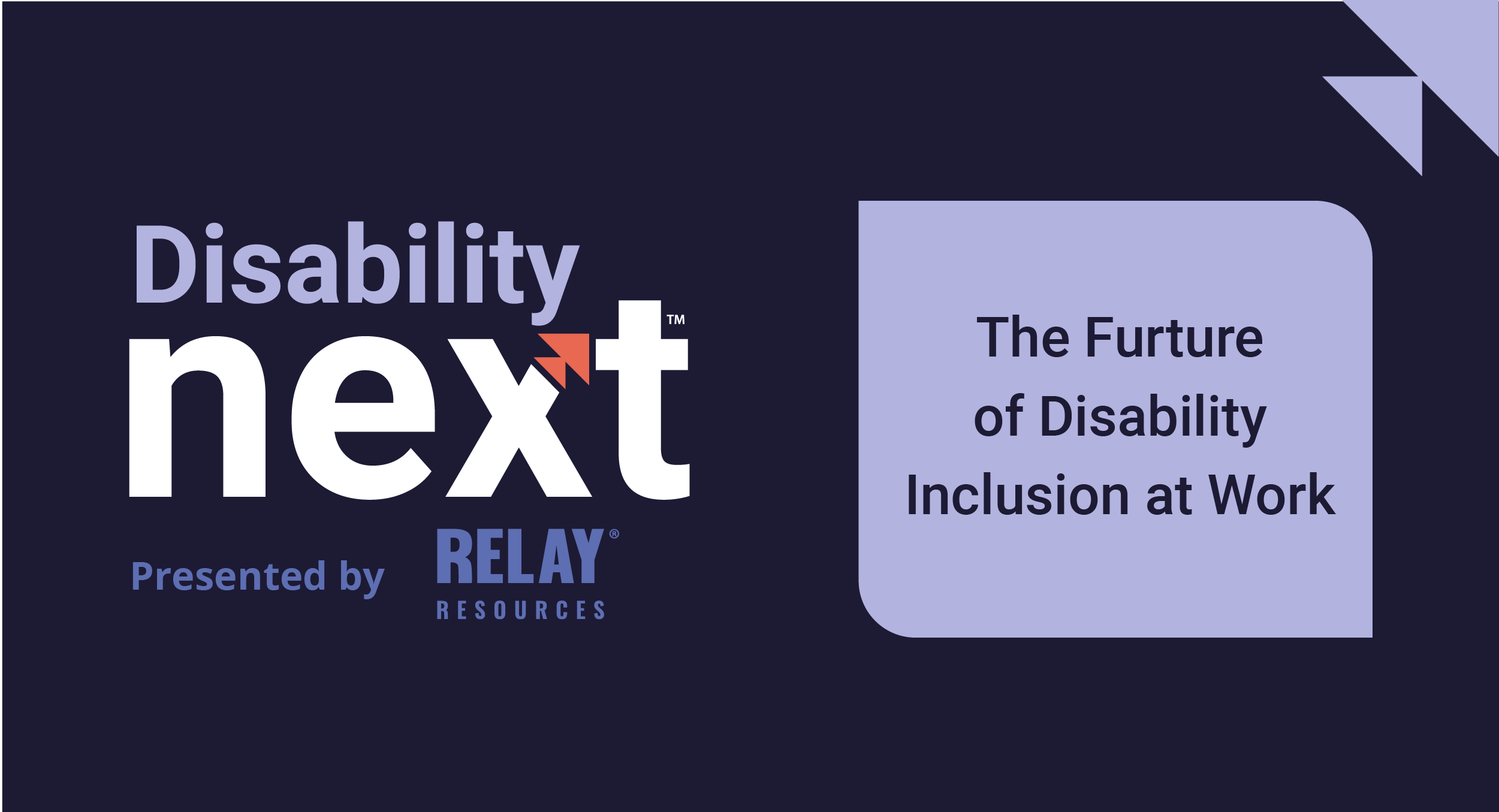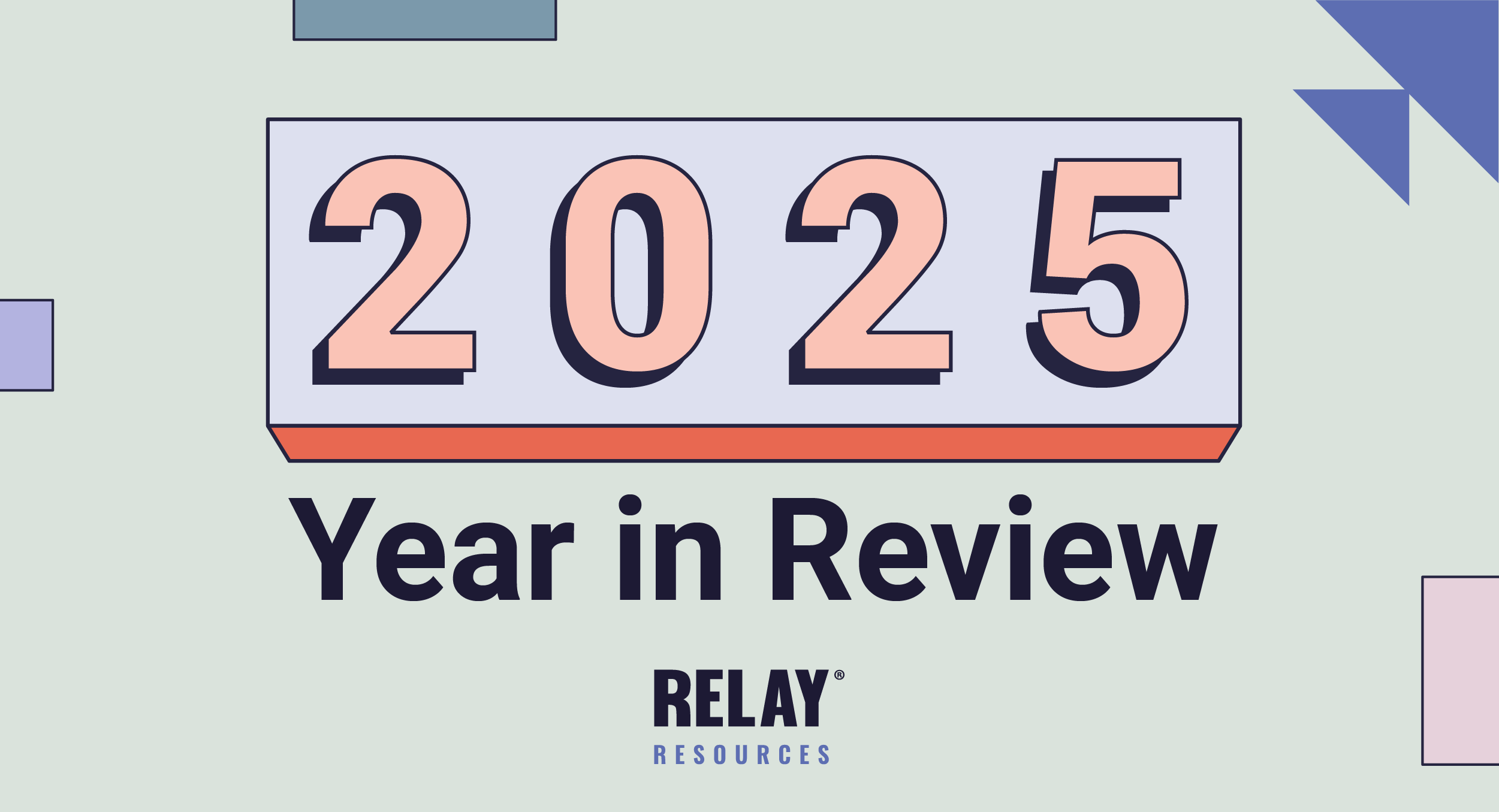Introducing the DisabilityNext™ Summit
Relay Resources is pleased to announce the upcoming DisabilityNext™ Summit, an event dedicated to advancing conversation and actions around...

Thought leaders from around the country gathered in Portland, Ore., for the inaugural conference focusing on disability inclusion in the workplace.
“If you want to work, need to work, and can work—and you’re disabled—you still have only half the opportunity to participate in the labor market. You are twice as likely to be unemployed."
—Dr. Jennifer Camota Luebke
This stark fact opened the DisabilityNext™ Summit, a conference presented by Relay Resources that challenged employers, leaders, and change makers to rethink hiring practices and the very systems shaping our workplaces. At the heart of this gathering was a powerful invitation: What if we stopped asking disabled people to fit into existing systems—and started redesigning those systems so that everyone belongs?
DisabilityNext™, which took place April 10 at the Peter W. Stott Center on the Portland State University campus in Portland, Ore., stood apart from other conferences in four essential ways:
1. It centered on disabled voices.
2. The conference featured one of the most diverse speaker lineups in disability conference history.
3. It focused on systemic change over personal “overcoming.”
4. The event framed disability not as a deficit, but as a driver of innovation, equity, and resilience.
On a partly sunny, partly rainy, perfect Portland spring Day, the inaugural event kicked off with employees from Relay Resources in maroon shirts checking guests in and hosting info tables with pens, fidget toys, stress balls, and sensory kits.
The highly accessible summit also featured live American Sign Languageinterpreters on stage, screen captioning, assistive listening devices, sunflower lanyards for attendees with non-apparent disabilities, and red and green pins stating attendees’ preferences for being approached. After some fruit, pastries, and coffee, attendees gathered on the floor to engage with some of the most exciting disability activists and experts in the field today.

Welcome to a Different Sort of Event
Relay Resources CEO Dr. Jennifer Camota Luebke (aka Dr. J) kicked off the morning by asking attendees a question: Why DisabilityNext™?
Dr. Luebke went on to explain that Relay Resources put on the event because disabled people still have half the opportunity and twice the unemployment rate—and because disabled people work and want to work.
Dr. J focused on four reasons why DisabilityNext™ is different from other conferences.
1. It’s centered on amplifying intersectional disabled voices and presenters.
2. The presenters are the most diverse group you will likely see at a conference—people of all races, genders, and sexual orientations.
3. The target audience for the summit is employers, with the conference focusing on transforming workplaces, not on telling stories about “overcoming” disability.
4. The event aims to accelerate disability inclusion in workplaces AND into the future, fostering a world where all disabled people belong.
Next up came Orlando Williams, a former Harlem Globetrotter, Portland Trail Blazers announcer, and the founder and current CEO of Motus Recruiting. Williams was our emcee for the event and challenged all attendees to be “disability ambassadors.”

A Keynote for Change
Imani Barbarin, a disability rights and inclusion advocate, delivered the opening keynote, giving attendees a brief history of how our society has treated disabled people—from the industrial revolution to the “ugly laws” to today.
“It’s important we start the issue of disabled employment with looking at the past so we understand that the problems we face today are symptoms, not a root cause,” Imani told the crowd. She then talked about how people spend one-third of their lives at their job—and it’s typically where they get income AND (in the U.S.) health care:
“When we tie the ability to live (i.e., access to health care) in the U.S. with labor, it’s important to make sure all have access to that labor,” Imani said. She also reminded us, “Your tomorrow is not promised; anyone can become disabled. It’s not a binary between ‘them’ and ‘us.’”
Imani continued, “Disabled people are not a category of people to be siloed; they’re a category of people that you can join at any time.”
Imani challenged us to go beyond the conference lectures and to implement accessibility in a real way, putting the things we learned at the DisabilityNext™ Summit into ACTION.

A Business that Makes a Difference
Next, Mark and John Cronin from John’s Crazy Socks gave the featured keynote and shared their story of creating a creative sock company. John, who has Down syndrome, had trouble finding a job after high school, so he had an idea to create his own business.
In humorous fashion, the father-and-son duo explained how they first wanted to start a food truck, but they soon ran into a problem. “We can’t cook!” said John, to laughter throughout the room. Mark talked about how, first of all, a business has to function well and make money. “We don’t hire people with different abilities to be nice; we hire them because it’s good business,” said Mark. Yet John’s Crazy Socks is also a social enterprise with the mission to spread happiness and gratitude to others.
Mark then discussed John’s Crazy Socks’ five pillars of business:
“Down syndrome does not hold me back,” said John at the end of their talk, before leading the summit in a chant of “nothing holds me back!”
Mark Cronin then summed up the pair’s entire speech: Employers need good workers, the disabled population is a great untapped pool of labor with minimal adaptations needed, and hiring disabled people is a competitive advantage.

Panels and Connections
At the first panel of the day, “Disabled Entrepreneurship: Models for Success,” we heard from Diego Mariscal, Aarti Sahgal, and John and Mark Cronin about the “soft bigotry of low expectations,” where Aarti talked about how disabled people are often only told their limitations by society. And yet entrepreneurs don’t ask for permission, she noted. Also, as Diego explained, the entrepreneurship of disabled individuals has already shaped our world. “The reality is we are already living and benefiting from the innovation of the disability community,” he said.
After a morning coffee break sponsored by Danner (one of Relay’s longtime clients), we launched into the panel “Neuroinclusion in the Workplace” with a presentation from Dr. Lawrence Fung of the Stanford Neurodiversity Project and talks by Larysa Kautz of Melwood and Dr. Ludmila Praslova, author of “The Canary Code,” who talked about how neurodivergent individuals are the “canaries in the coalmine” who can suss out toxic work environments.
The busy morning was capped off with a diamond keynote address by Andrew Holbrook of Wells Fargo, the company’s first chief accessibility officer.
Finishing the Day Strong and Hopeful
After a box lunch along the Portland State University park blocks, we heard from the event’s featured keynote speaker, Danté Q. Allen, former Commissioner of the Rehabilitation Services Administration & Former Executive Director for CalABLE, about how disability isn’t just a deficit, it’s a diver of innovation.
Our two afternoon panels were “Technology Enablers for Workplace Inclusion” and “Mental Health in the Workplace”—both topics that we plan to cover in the blog in further depth.
Our closing keynote was given by Catarina Rivera, who goes by the moniker Blindish Latina. Summing up the day, Catarina said, “Let’s build a more inclusive world together that truly works for everyone."

We want to give a huge shout-out to all the Relay Resources employees who made this summit a success, as well as to Alfonso Carmona and Laura Hansen for organizing and directing the show. Thanks to Dr. J and Wally Tablit for organizing and inviting speakers; Wally mentioned that they had to turn people away from speaking because so many people were interested!
DisabilityNext™ wasn't about inspiration; it was about action.
From hard truths about employment inequity to bold visions of accessibility-first innovation, the speakers—from entrepreneurs to policymakers to educators—delivered an urgent message: Disability inclusion is not just the right thing to do; it's essential to the future of work for all of us. Here’s to a successful debut DisabilityNext™ Summit, and of course, as Dr. J mentioned, this is just the beginning!

Relay Resources is pleased to announce the upcoming DisabilityNext™ Summit, an event dedicated to advancing conversation and actions around...
.png)
We’re proud to share that our president, CEO and Chief Disability Inclusion Officer,Dr. Jennifer Camota Luebke, Ed.D., MBA, has been named one of the...

If 2024 was a time of growth, inclusivity, and transformation for Relay Resources, 2025 has been a year of putting those goals into action! We...